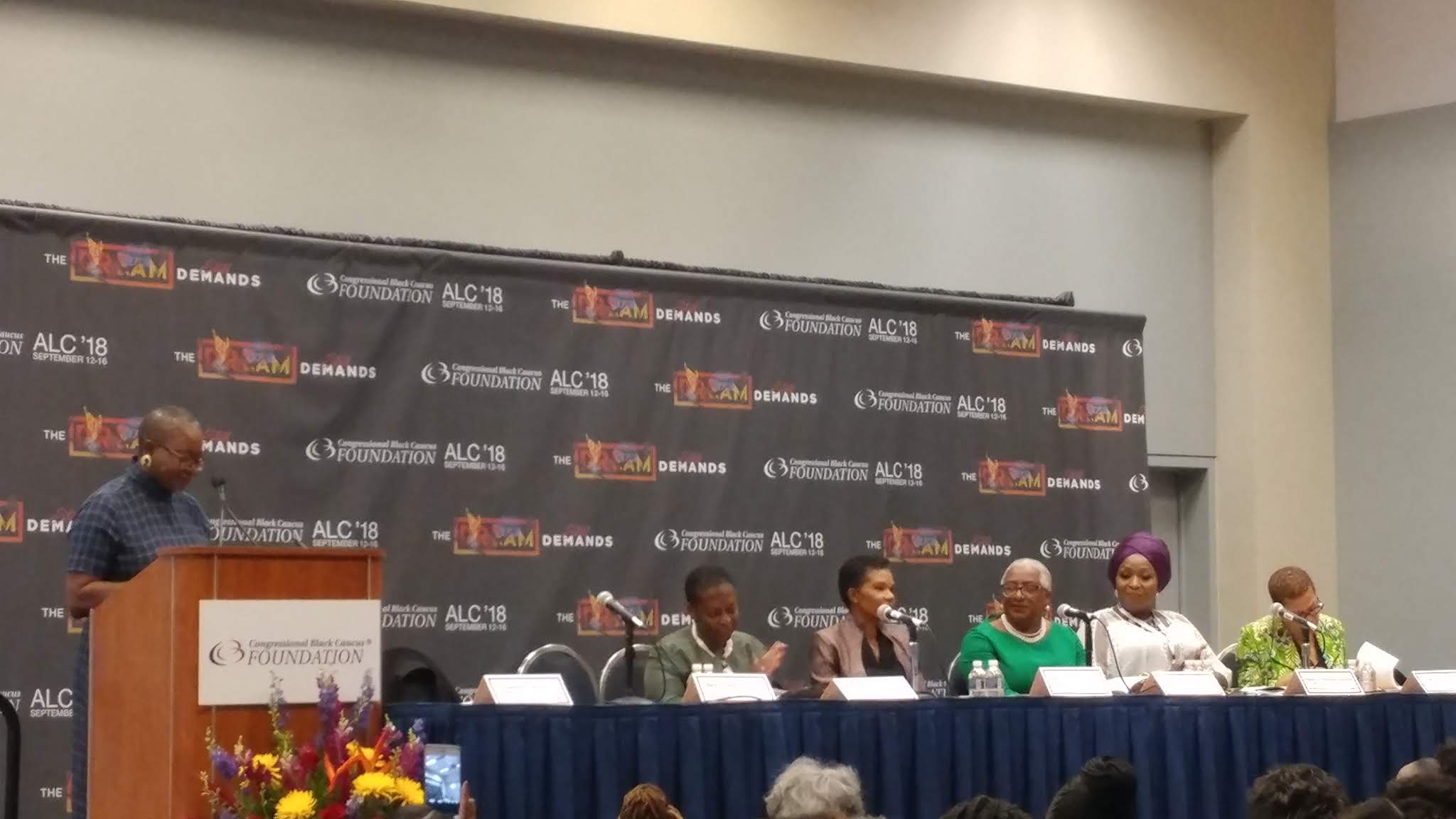As a Black person, you probably already know that any event that starts off with
Lift Every Voice and Sing aka the Black National Anthem is going to be thought-provoking and powerful.
That’s exactly what happened Thursday afternoon during the
International Black Women’s Public Policy Institute’s 10th Annual Policy Forum, which focused around leadership in a global Black women’s movement. Sesheida Daniel Young, with her first raised proudly in the air, belted out the words of the beloved hymn as several members of the crowd sang along, a handful even raising their fists to return the salute.
The event was another highlight of the
Congressional Black Caucus’ 48th annual conference where a panel of four powerful women, each representing their own country spoke about the need to develop the leadership of women, particularly Black women in order to further advance not only in their own countries, but across the world.
The Hon. Paula A. Cox, the former Premier of Bermuda, Her Excellency Audrey P. Marks, the Ambassador of Jamaica to the U.S., the Hon. Katherine Forbes-Smith the Senate President of the Bahamas, Princess Dr. Moradeun Ogunlana of Nigeria, the CEO of Innovative Global Consulting and Dr. Julianne Malveaux, the founder and president of Economic Education, all spoke on the panel sharing their unique experiences and issues that their individual countries face when it comes to women in leadership.
The common themes that resonated across the panel was the need for
women to support women, as well as the need for women to start acknowledging, accepting and
using their own power.
Panelists like Forbes-Smith lamented the fact that often when women run for office they do not get the support and backing that they need, even from other women.
“I always tell the story that women don’t like each other,” Forbes-Smith said. “We are our own worst enemy, particularly I think in very small communities, but as I talk to women all around the world they say the same thing. I think that generally women need to want to support women in leadership roles.”
“Until women themselves accept that it is okay for women to lead and be a prime minister, I think we’re going to have some difficulties,” she added.
And perhaps a part of learning how to support women better is to acknowledge and accepting the power of women, particularly women of color who have to jump through twice as many hoops just to be recognized.
“
As an entrepreneur, especially women entrepreneurs, Black women entrepreneurs…you are going to face obstacles than is the norm and it is critical for you to understand and own your power if you’re going to succeed in business,” Marks said, speaking from her own entrepreneurial background as someone who started and operated six previous businesses.
“The normal ways of being able to inherit and access resources, especially financial resources is more limited so you have to be clear of what your assets are,” she added. “The ability to negotiate, the ability to stay focused, and [be] tenacious about the things that you believe, to carry on until you see results.”
“
As women we should be assertive, and we should not take being assertive and aggressive as a negative. That’s what they put on you,” Forbes-Smith said “You do not have to like anybody, you just need to understand that the more women we have at the table, the more productive we’re going to be.”
And women
should be in power, across several fields and industries, across the world, women seek power to make a difference.
“For us it’s about how can you effect change and how can you effect legislative change and perhaps when one passes legislation which is ground breaking, maybe that’s when it crystallizes that you have influence, but I don’t know that one actually tends to wrap it around in the power label as much,” Cox said.
“
I don’t think that women seek power for power’s sake but when we look at women who will run for public office in the previous generation, [like Maxine Waters], many of those women got involved in politics because something was wrong, as little as a street sign or a school issue and when they got into it they found that they liked it, and they found that they could make a difference,” Malveaux agreed. ” There are those who seek power for the sake of seeking power, but I find that most women seek power because they want to make a difference.”


